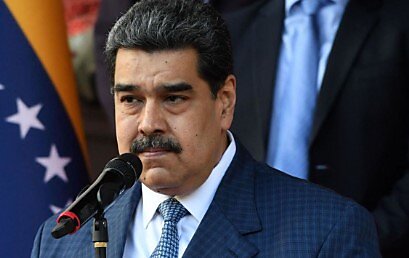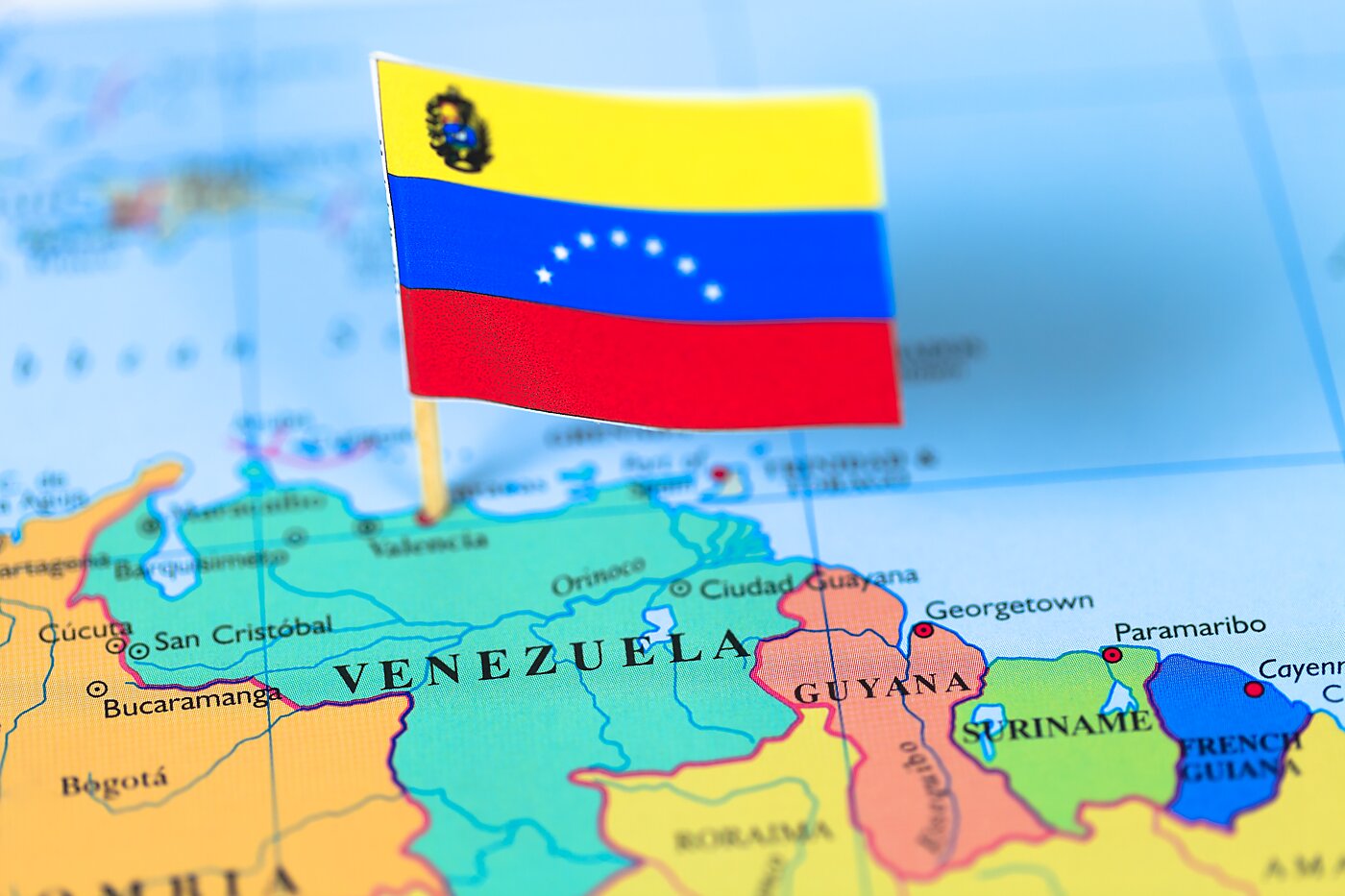“In a telephone call Friday [September 20] with UN Secretary-General Antonio Guterres, Maduro warned about the ‘hiring of mercenaries to invade the country.’” So reported France 24 last month, emphasizing Blackwater founder Erik Prince’s involvement in an online campaign called Ya Casi Venezuela (“We are almost there, Venezuela”), which allegedly aims to raise funds to finance a mercenary force that would enter the country and topple Nicolás Maduro’s socialist regime.
Ya Casi Venezuela’s structure and goals are not yet transparent. Nor is it clear who is behind the campaign. But given Prince’s previous work for the US government, his links to the movement have raised speculation about potential US involvement in the alleged mercenary plan. As per France 24, Washington quickly denied these rumors, especially after the regime’s forces arrested two Americans, among other foreigners, and accused them of plotting to assassinate Maduro.
The story’s Washington angle—and the foreign angle in general—distracts from the main issue in question, which is Maduro’s illegitimacy. In 2017, Maduro nullified the power of the official, opposition-controlled parliament or National Assembly, depriving it of its legitimate power. This year, Maduro stole an election that he lost in a landslide, as recognized by several governments and even the formerly Chavista-friendly Carter Center. The election’s winner, Edmundo González, a 75-year-old former diplomat who is now exiled in Spain, is Venezuela’s legitimate president-elect.
The question, then, is whether Venezuelans would be justified in removing the Maduro regime by force. As I argued recently, other options such as peaceful protests, negotiations with the regime, a palace coup, or diplomatic pressure will most likely be ineffective, as Cuba’s own experience under socialist tyranny can attest. And when it comes to repression in Venezuela and keeping the Maduro regime in place, Cuba runs the show.
Since the Venezuelan citizenry is unarmed, one remaining option to restore a democratic republic is the hiring of an oustide fighting force that would act as an army of liberation. But would a war to free Venezuela be legitimate? To answer, one might turn the question on its head: other than through brute force, how can Maduro remain in power after losing an election by 67 to 30 percent, despite banning the candidacy of the leader of the opposition, María Corina Machado, and not allowing millions of anti-Maduro Venezuelans living abroad to vote?
The real issue at stake is popular sovereignty, the notion that a government is legitimate only through the consent of the governed. As per John Locke’s Second Treatise of Government:
“…whenever the legislators endeavor to take away, and destroy the property of the people, or to reduce them to slavery under arbitrary power, they put themselves into a state of war with the people, who are thereupon absolved from any farther obedience, and are left to the common refuge, which God hath provided for all men, against force and violence. Whensoever therefore the legislative shall transgress this fundamental rule of society; and either by ambition, fear, folly or corruption, endeavor to grasp themselves, or put into the hands of any other, an absolute power over the lives, liberties, and estates of the people; by this breach of trust they forfeit the power the people had put into their hands for quite contrary ends, and it devolves to the people, who have a right to resume their original liberty, and, by the establishment of a new legislative, (such as they shall think fit) provide for their own safety and security, which is the end for which they are in society. What I have said here, concerning the legislative in general, holds true also concerning the supreme executor, who having a double trust put in him, both to have a part in the legislative, and the supreme execution of the law, acts against both, when he goes about to set up his own arbitrary will as the law of the society.”
In a Lockean sense, then, Maduro is doubly guilty of imposing absolute power over Venezuelans’ lives, liberty, and property. First, by usurping the legislative branch’s power in 2017; second, by exerting his “arbitrary will” as the “supreme executor” —that is, as the head of a likewise usurped executive branch—against the explicit consent of the governed.
Hence, in Locke’s terms, Maduro has long waged war on the Venezuelan people. In turn, Venezuelans are absolved of any obedience to Maduro. Power has devolved to them. They would be fully justified in providing for their own safety and security. Any effort to resume their original liberty—by means of “the common refuge against force and violence” —would be legitimate.
This is the spirit, of course, of the US Declaration of Independence. Thomas Jefferson (et al.) asserts that “whenever any Form of Government becomes destructive of these ends” —that is, the unalienable rights of life, liberty, and the pursuit of happiness— “it is the Right of the People to alter or to abolish it, and to institute new Government” based upon such principles. So far, so Lockean. But Jefferson goes further, stating that it is the duty of a people—not only its right— “to throw off” a government “when a long train of abuses and usurpations, pursuing invariably the same Object evinces a design to reduce them under absolute Despotism.”
Venezuelans, as despotically reduced as they are today, have as clear-cut a case to overthrow Maduro and institute a new government as did the American founders in 1776 when they declared their independence from King George III. Even more so, one could argue.
Maduro and his propagandists could try to portray Locke and Jefferson’s theories as foreign, Anglo-American pretexts to oust him from power. The problem is that the notion of popular sovereignty long predates Locke’s Second Treatise, and it has a particularly strong tradition in the early modern, Spanish-speaking world. In the late 16th and early 17th centuries, Jesuit scholars Juan de Mariana and Francisco Suárez held that monarchical power rested on popular consent. They even argued that when a king turned into a tyrant—for instance, through arbitrary taxation or the debasement of the currency—then tyrannicide was justified. It is little wonder that both Locke and Jefferson were familiar with Mariana’s work.
Thus, within the Hispanic tradition of liberty, ousting Maduro by force is a fully legitimate means for Venezuelans to restore popular sovereignty, even if the best means to bring it about is the hiring of mercenaries. Whether this benefits Washington, whether American policymakers should approve, whether Russia’s Wagner force will come to Maduro’s aid despite the war in Ukraine; these might be relevant geopolitical questions, but they are beside the point of legitimacy and Venezuelans’ natural, unalienable right to life, liberty, and property. If the Venezuelan leadership so chooses—and, so far, Machado has insisted on a peaceful transition of power—it has every right to hire mercenaries to topple Maduro. They even have a duty to do so, Jefferson might say.
How can they pay for such a force if Maduro controls the state’s resources? The proposal that has received the most press is among the worst available. Responding to Prince’s suggestion that raising the State Department’s bounty on Maduro from $15 million to $100 million would allow “magic” to happen in Venezuela, Florida senators Rick Scott and Marco Rubio introduced legislation that, if approved, would do just that. The aim might be to pay the bounty with funds seized from Citgo, a Venezuelan state-owned energy company. But this puts Washington at the forefront of the effort to free Venezuela, whereas the proper role for Washington is to have no role at all.
Consider that Venezuela sits atop the world’s largest crude oil reserves. The country’s legitimate leadership could offer a serious mercenary company—and Blackwater (now known as Academi) is not the only choice— a generous royalty agreement on all crude production during a specified time period if it defeats and ousts Maduro. The market then truly could work its magic.
The media seems to regard the mercenary option for Venezuela as outlandish. The irony is that Venezuela only won its independence from Spain, initially as a part of Greater Colombia, thanks to the ca. 7,000 British mercenaries who formed the heart of Simón Bolívar’s infantry.
Bolívar himself said that the members of his British Legion were the “saviors of (South) America.” He called his agent Luis López Méndez, who was posted in London to recruit British infantrymen into the legion, “the true liberator” of the new Andean nations. In his acerbic biography of Bolívar, Karl Marx wrote that the Liberator’s foreign legion “was more dreaded by the Spaniards than 10 times the number of Colombians.” Marxist hyperbole aside, the arrival of British mercenaries, many of them veterans of the Napoleonic wars, was a turning point in the war of independence.
On the Spanish side, most of the 10,000 men who arrived in Venezuela and Colombia in 1815 were themselves veterans of Spain’s own war of liberation against Napoleon. It was a force to be reckoned with, which, under General Pablo Morillo, promptly carried out the “Reconquest” of the Viceroyalty of New Granada (roughly today’s Colombia, Ecuador, Panama, and Venezuela). Hence Bolívar’s need to build a formidable infantry force by recruiting British mercenaries. By contrast, Venezuela’s armed forces today are a mere instrument of repression, undoubtedly skilled at subduing an unarmed populace, but ill-prepared to wage combat against a competent enemy.
Plagued by mass desertions even from its officer corps, Venezuela’s military is a low-wage (even by regional standards), poorly equipped outfit whose combat capacity is a fraction of its reported size of 120,000 troops. Soldiers often take second jobs to supplement their meager pay, and the Air Force struggles to get its planes off the ground. In 2021, around 300 members of the Revolutionary Armed Forces of Colombia (FARC), a supposedly demobilized guerrilla group, defeated a much larger, better-equipped Venezuelan government task force, which even had air support and armored vehicles. According to Insight Crime:
“The (FARC’s) 10th Front had effectively exposed how the capacity of the Venezuelan military has been degraded, not only through neglect but also through the government turning it into a political tool whose primary purpose is not to defend the country but to maintain the Chavista regime, said a retired military general…
‘The armed forces are morally depressed because they have been used, ideologized, politicized,’ he said. ‘They have lost their objective, their reason for existing.’”
It is thus hardly surprising that, according to Chilean journalists expelled from Venezuela for covering the 2024 election, the military personnel themselves also voted overwhelmingly against Maduro.
None of which guarantees that a proper mercenary force, were Venezuela’s leadership to put it together, could rout Maduro’s forces and easily remove the tyrant from power. The mission’s logistics would be a challenge, and ill-planned, poorly financed efforts have failed before. Despite much bloodshed, a Syria-style stalemate could ensue, in which case a part of the country would remain under Maduro’s grasp, with the legitimate government in control of the rest (which, I would argue, would be an improvement compared to the current scenario). The risk is significant, the outcome is uncertain. But the alternative is the almost certain continuity of Maduro’s tyranny over the whole of Venezuela.
America’s war of independence was no walk in the park, but few today would claim that the founders took undue risks, or that their profound sacrifices were uncalled for. As per Locke, Jefferson, Mariana, and Suárez, a chilling lesson of history is that, on occasion, freedom cannot be won without the sword. Chilling, yet true nonetheless.




















